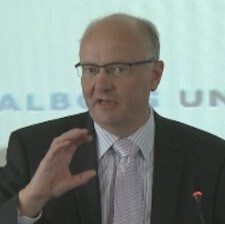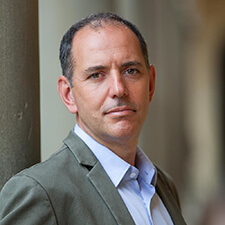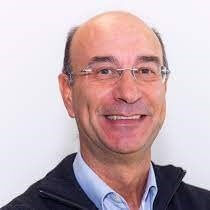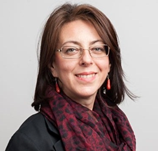Keynote Speakers

Professor Henrik Lund
Smart Renewable Energy Systems and a fully Decarbonized Society
This presentation focus on how societies can design and implement renewable energy and decarbonisation strategies. The presentation presents and discuss a set of methods and criteria to design Smart Energy Systems, while taking into account the context of 100% renewable energy on a national level. Countries should handle locally what concerns local demands, but acknowledge the international context when discussing resources and industrial and transport demands. To illustrate the method, it is applied to the case of Denmark within the context of a European and a global energy system.
Recently, the Danish Government supported by the Danish Parliament decided for the target of a 70% decrease in Greenhouse gasses by 2030. This presentation includes a list of theoretical and methodological considerations as well as a concrete proposal on how such targets can be implemented. It is highlighted that already now one have to think beyond 2030 in order to prepare for the next step to achieve a fully decarbonisation by 2040 or 2050. It is also highlighted that a country such as Denmark have to consider how to include its share of international shipping and aviation as well as how to design a solution with Denmark’s share of sustainable biomass resources
Short Bio
M.Sc.Eng, PhD, Dr.Techn. Henrik Lund is Professor in Energy Planning at Aalborg University in Denmark and Editor-in-Chief of Elsevier international journal ENERGY. Prof. Lund was head of department from 1996 to 2002 and has served as head of several large research projects in Denmark as well as in Europe. Prof. Lund holds a PhD in “Implementation of sustainable energy systems” (1990) and a senior doctoral degree in “Choice Awareness and Renewable Energy Systems” (2009). Prof. Lund has more than 25 years of research experience and involvement in Danish Energy Planning and Policy making. Among others, Prof. Lund has been involved in the making of the Danish Society of Engineers’, proposal for a future 100% Renewable Energy Plan for Denmark. Prof. Lund was awarded a gold medal by the International Energy Foundation (IEF) for ”Best Research Paper Award” within the area “Energy Policies & Economics” in 1998. And Prof. Lund is the main developer of the energy system analysis model EnergyPLAN, which is used by various researchers and energy planners around the world. Prof. Lund has contributed to more than 200 books and articles and is the author of the book “Renewable Energy Systems – The Choice and Modeling of 100% Renewable Solutions.” (Academic Press, Elsevier 2014).

Professor Xavier Labandeira
Environmental tax reform in the 21st century: main messages from the recent Spanish white book
Short Bio
Professor in the Department of Applied Economics at the University of Vigo and belong to the research group Rede and to the Galician cluster Ecobas. Director of Economics for Energy, a private research center that specializes in the analysis of energy issues and aims to create and transmit rigorous, neutral and useful knowledge to the different agents of Spanish society. Member of the UN Intergovernmental Panel on Climate Change (IPCC) for the elaboration of its Fifth and Sixth Assessment Reports (respectively released in 2014 and forthcoming in 2021). Between 2014 and 2017, director of the Florence School of Regulation-Climate at the European University Institute in Florence.
Prof. Labandeira research lies in the boundaries between climate, energy and public economics: His work has been published in the leading academic journals. He is also a member of the EAERE’s Policy Outreach Committee since 2018 and currently a member of the committee of experts for the reform of the Spanish tax system.

Professor Tomás Gomez
New flexibility market models in Europe
Distributed energy resources may become a vital flexibility source to support the operation of a highly decarbonized electricity system based on renewables. In addition, in Europe, the digitalization of networks and the implementation of smart metering allow consumers and DSOs to know almost real-time load and generation patterns. Market models using digital platforms are flourishing. Consumers and aggregators exploiting flexible distributed resources can provide services to system operators and trade energy between them. This presentation compares European platforms and initiatives for new market models. Provided services and functions, coordination between system operators (TSOs and DSOs), and relationship with existing markets are analyzed.
Short Bio
Tomás Gómez San Román is a professor of Electrical Engineering at the Engineering School of Universidad Pontificia Comillas in Madrid, Spain.He obtained the Degree of Doctor Ingeniero Industrial from Universidad Politécnica, Madrid, in 1989, and the Degree of Ingeniero Industrial in Electrical Engineering from Comillas in 1982.He joined the Institute for Research in Technology (IIT) in 1984. He has served as Director of IIT, and Vice-Rector of Research, Development, and Innovation of Comillas.Prof. Gómez has a large experience in industry joint research projects in the field of Electric Energy Systems in collaboration with Spanish, Latin American, and European institutions.
He has been project manager and/or principal investigator in more than 80 research projects.His areas of interest are operation and planning of transmission and distribution systems, power quality assessment and regulation, and economic and regulatory issues in the electrical power sector. He has published more than 100 articles in different specialized magazines such as IEEE PES Transactions and Conference proceedings, and has co-authored the book «Electricity Economics: Regulation and Deregulation» in Wiley-IEEE Press.He is a senior member of IEEE.He has been visiting researcher at the Energy Analysis Department of the Lawrence Berkeley National Laboratory in California.
From May 2011 to October 2013 he served as commissioner at the Spanish Energy Regulatory Commission (CNE).

Professor Amela Ajanovic
Challenges for sustainable development of the transport sector
Short Bio
Amela Ajanovic is Associated Professor in Energy Economics at Vienna University of Technology (TU Wien). She is a lecture and faculty member of the postgraduate MSc Program “Renewable Energy Systems”. She holds a master degree in electrical engineering and a PhD in energy economics at TU Wien. Her main research interests are alternative fuels and alternative automotive technologies as well as sustainable energy system and long-term energy scenarios. She has been guest researcher at the Energy Research Centre of the Netherlands (ECN) in Amsterdam and at the International Energy Agency (IEA) in Paris working on the World Energy Outlook, as well as a guest lecturer at the Technical University of Prague. She has been involved in many national and international research projects, and her work has been published in the leading scientific peer- reviewed international journals. She has also served as a guest editor on several occasions and is an associate editor of different scientific journals. She is an active member of various academic and scientific committees and associations.
